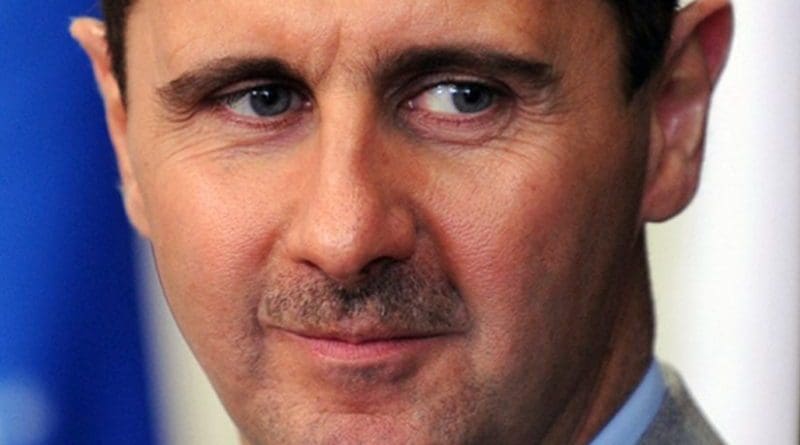Syria: Assad Is Not The Only Snag – OpEd
By Arab News
By Osama Al Sharif
Last week’s Vienna meeting on resolving the Syrian conflict was the first serious attempt by stakeholders to kick-start a political process since the US and Russia, along with other countries, adopted a six-point plan in Geneva in June 2012.
The Geneva I principles were embedded into the final communiqué of the Vienna meeting which was attended by representatives of 17 countries and bodies. That in itself was an achievement.
There are other important observations about the Vienna talks. It is now evident that the US and Russia have decided to work together to launch a political process in Syria that aims primarily at preserving the territorial integrity of that country and enable the creation of a transitional government that would satisfy the aims and objectives of most key players in the Syrian conflict. This common US-Russian approach has facilitated the inclusion of Iran into the Vienna talks.
The nine points included in the Vienna communiqué provide the basis for further talks and negotiations. Certainly Moscow’s decision to focus on a political process, soon after it had intervened militarily in Syria, is an indication that few believe that the conflict can be resolved through force four years after it erupted. With many parties finding themselves stuck in the Syrian quagmire the stakes have become higher for all. As much as a solution to the conflict now hinges on the fate of President Bashar Assad it is fair to say that his departure will not guarantee that Syria will rid itself of armed militias, adopt a democratic and inclusive constitution, allow the return of millions of displaced persons and launch a costly and lengthy rebuilding process.
Russia’s military intervention may have been necessary not to save Assad personally, but to prevent chaos and the collapse of the Syrian state. More importantly it was necessitated by the failure of the US-led coalition to defeat Daesh or halt its expansion in Syria. But after more than a month since Moscow stepped in, the regime is still unable to win back territory. Ironically, Daesh has made gains near Aleppo in the past few weeks.
Despite the US-Russian understanding the political process will take some time to put together. Meanwhile, Saudi Arabia and Qatar remain committed to helping some opposition groups. Iran has boosted its military presence even though it is now part of the new action group on Syria. Turkey’s relationship with Daesh is still an issue, but Ankara’s main concern now is to prevent the creation of a de facto Kurdish enclave along its southern borders with Syria.
The Obama administration, which for long has been criticized for not having a clear strategy in Syria, has now decided to deploy 50 Special Operations troops to help Kurdish forces and others in the fight against Daesh. With over 3,500 US troops in nearby Iraq it is not farfetched that Washington may increase its military presence in Syria in the near future.
Russia has warned of a proxy war in Syria but that is already happening. It will be virtually impossible to implement the Vienna I principles if various sides to the conflict continue to influence what is happening on the ground.
Furthermore, launching a political process that will lead to the creation of a transitional government cannot even begin if the regime and the opposition are not talking to each other. Both were not invited to the Vienna talks, but this situation will have to change soon. The challenge here, especially for UN special envoy Staffan de Mistura, is not only to convince the Damascus regime to talk to the opposition but to persuade the opposition to engage in negotiations with the government. But the question is what kind of opposition are we talking about? With dozens of groups actively in control of various territory in Syria who will be invited and who will not?
The Vienna talks, which will be resumed soon, will have to address all these issues before a political process is launched. It is not true that the only snag in the negotiations is the future of Assad. That is crucial, but to assume that other challenges do not exist is simplistic.
What is important at this stage is to keep the diplomatic momentum going. All players are suffering from Syria fatigue and would want to engage in some sort of a political process that will somehow end the conflict and bring some rewards to the so-called stakeholders. But the diplomatic process will not achieve anything if Syria continues to be a battlefield for regional powers. The scope of the diplomatic brainstorming must include resolving conflicts between regional powers that have a stake in Syria or are fighting over it.

